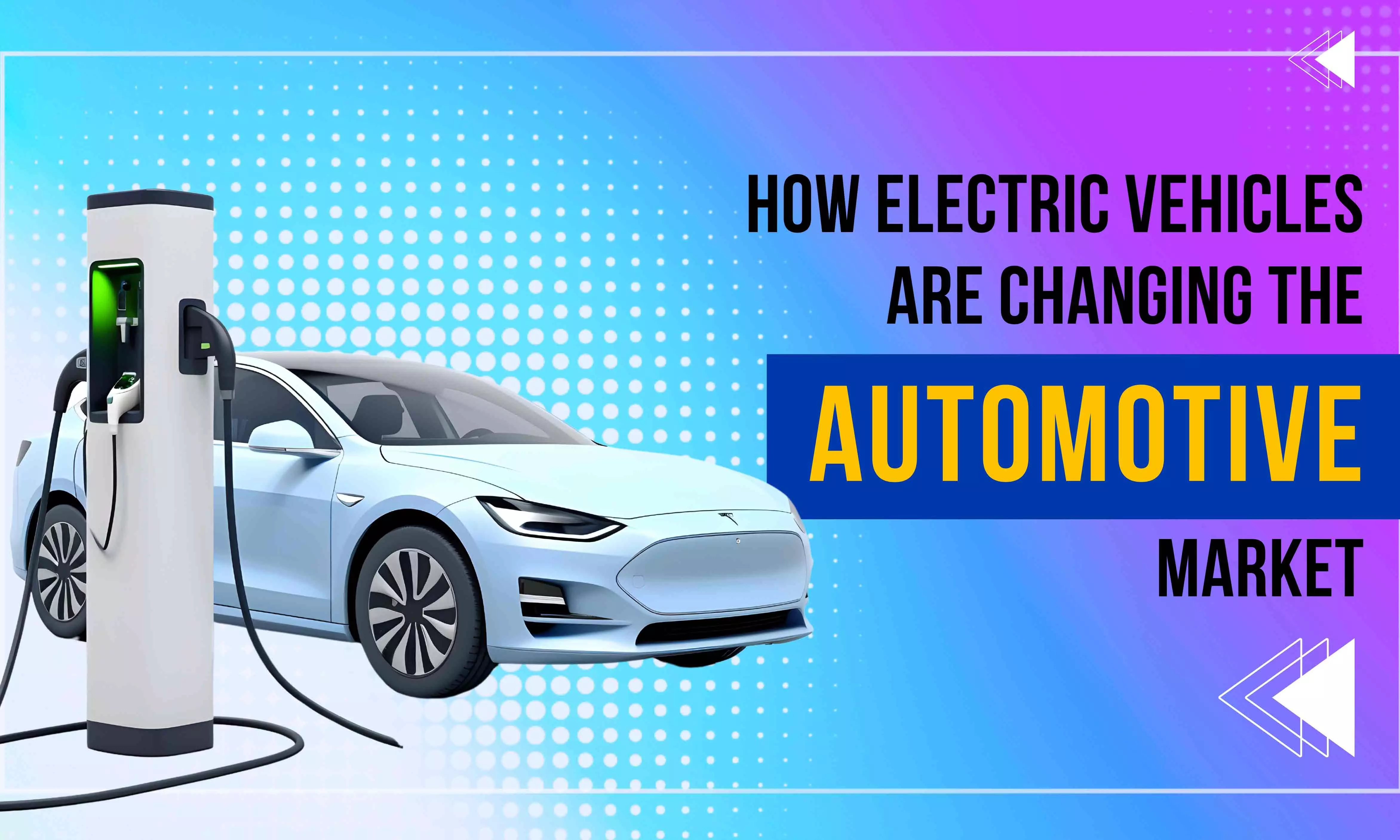How Electric Cars Are Changing the Market: New Trends In the Automotive Industry
Let's learn some of the key trends and how electric vehicles are revolutionising the automotive industry.
How Electric Cars Are Changing the Market: New Trends In the Automotive Industry

When you hear the word sustainability, what first thing that comes to your mind? For some, it must be about renewable fuel sources or reduced carbon emissions, but for others, it is all about protecting the environment and adopting ways to keep the delicate ecosystem in balance. This is where, among other things, the acceptance of electric vehicles emerged as crucial, influencing both the environment and the automotive industry as a whole.
Gone are the days when people used to buy automobiles, including internal combustion engine vehicles (ICEV), just for the sake of buying them. However, for the younger generation, acquiring a vehicle has become an investment, with a focus on sustainability and environmental impact. This shift in customer behaviour has compelled automakers to innovate and produce more environmentally friendly solutions to fulfil the growing demand for electric vehicles.
Thus, it is true to say that ever since people have become more aware of environmental concerns, the EV impact on the auto industry has grown constantly. To highlight the fact, in India, the EV registration was only 1.25 lakh units, and it increased to 10.25 lakh units in 2023—9X growth. As per the Economic Survey, the sector is expected to grow by 49% between 2022 and 2030. And it will have 1 crore units of annual sales by 2030.
Now, as this revolution unfolds, several key trends are propelling the evolution, making the future of the electric car industry even more promising. However, before delving into the trends, let's understand the difference between EVs and ICE and how the EV market has grown in terms of revenue.
Electric cars vs. traditional vehicles
The primary difference between traditional vehicles and electric vehicles lies in their power source. If we go into a little detail, conventional cars use internal combustion engines that burn fuel to produce energy, while electric cars rely on batteries and electric motors for power. The technology used in conventional cars has been around for over a century, while electric cars are a relatively new development.
Another key difference between conventional cars and electric cars is their maintenance requirements. For instance, ICE vehicles need oil changes, air filter replacements, and spark plug replacements. Electric vehicles, on the other hand, require periodic battery changes and software updates to ensure maximum performance over time.
Furthermore, one of the most important differences between them is their environmental impact. Conventional cars emit harmful pollutants into the environment, including carbon monoxide, nitrogen oxides, and particulate matter. Electric cars emit zero greenhouse gases during operation, mitigating their impact on the environment as they rely solely on electricity from renewable energy sources such as solar or wind power.
EV market disruption: How EVs are transforming transportation
Undeniably, the electric vehicle (EV) market has completely transformed transportation, shaking up traditional practices and revolutionising the way we travel. According to a Fortune Business Insights report, the Indian electric vehicle market is expected to expand at a compound annual growth rate (CAGR) of 66.52%, reaching $113.99 billion by 2029.
This rapid growth indicates the potential of the industry to reshape the automotive sector in the country. The industry has experienced robust growth in recent years, buoyed by the government's favourable policies and initiatives. According to a joint report by GameChanger Law Advisors and Speciale Invest, the Indian EV battery market is also poised for remarkable growth, projected to soar from $16.77 billion in 2023 to an impressive $27.70 billion by 2028.
Moreover, electric vehicles are becoming more accessible, with many manufacturers offering affordable models. This transition not only reduces carbon emissions but also diversifies the transportation sector, paving the way for new opportunities in innovation and expansion. As EV adoption accelerates, a substantial reduction in greenhouse gas emissions can be expected, fundamentally altering the transportation landscape.
Hence, it's fair to say that the growth of EVs is the result of a collective effort, involving all stakeholders in the industry.
EV adoption trends
Trend 1: Lower electric car prices
Thanks to ongoing technological breakthroughs and heightened carmaker rivalry, the cost of electric automobiles is coming down for consumers. Therefore, because of this trend, electric vehicles are becoming a more appealing choice for people who want to lower their long-term fuel expenses and lessen their carbon footprint.
Trend 2: Battery longevity
Modernising the vehicle's internal battery technology is one innovation that is being worked on and has the potential to increase market value and reduce expenses. Within the next ten years, these more affordable batteries may reduce the cost of gas-powered vehicles to that of electric vehicles thanks to continuously improved lithium-ion battery cathodes.
Trend 3: Car monopolising
With certain automakers dominating the EV industry, there is an emerging risk of car monopolising, limiting consumer choice and innovation. Thus, it is important for regulators to monitor and address any potential anti-competitive behaviour to ensure a fair and diverse market for electric vehicles. Additionally, encouraging new players to enter the market can help promote innovation and drive down prices for consumers.
EVs and automotive innovation: Key Driver for India's Ecosystem
In India, the future of electric vehicles looks promising, with significant growth anticipated in the coming years. Thus, the journey toward widespread EV adoption is indeed fortunate, promising a transportation future that is both technologically advanced and environmentally conscious.

